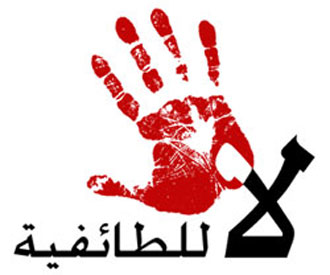
|
 |
 |
|
|
|
|
|
|
|
|
|
|
|
|
|
|
|
|
|
|
|
|
|
|
The Role of Government, Elites and Civil Society Institutions in Combating Sectarianism
The elimination of sectarianism is an impossible task that exceeds the capacity of any country. However, it is possible to reduce its tensions and control sectarian disagreements if the Bahraini Government and all other political and social parties work together. The following are some ideas and suggestions for the ideal roles of the concerned parties in containing sectarianism: The Government’s role: the Government is responsible for controlling sectarian disagreements in order to prevent them developing into a social conflict. In other words, the Government is required to intervene when appropriate to prevent society slipping into schism with unexpected consequences. The Government is also required to adopt legislation which criminalizes sectarian activities and introduce deterrent punishments. It should also adopt regulations to organize religious discourse and the media to prevent sectarian provocations. These proposals should be presented to Parliament for discussion and ratification. In addition, the Government is responsible for the impartiality of its own agencies during sectarian conflicts, otherwise it will become part of the conflict itself and lose its credibility as an impartial guardian and judge. Also, it should guard state institutions against sectarian practices and warn Government officials and employees of sectarian bias. Moreover, it is required at the same time to continue respecting religious freedom of expression and human rights. The Government should ensure that no violations of the general principles outlined in the Charter and the reform project take place during the process of organizing sectarianism. Freedom is an effective means of controlling sectarian discourse and its advocates, as extreme measures yield opposite results and will only inflame sectarian troubles. Finally, the Government should provide programs that bring together different views and put into place anti-sectarian national projects which promote stability and social and political integration. It is noteworthy that the King has made many efforts in this regard and has repeatedly brought together religious and political figures and MPs from both sects. Also, the Government has introduced a number of joint programs, but unfortunately these proved to be fruitless. We have great hope that the political and religious arena will mature, and that the main political and religious figures will strive to protect the national unity of the country. The role of political and religious elites: it is noticeable that in recent years most sectarian problems have been instigated by the elites of the country and not by the public. These elites have failed to form joint social, political, religious and environmental institutions and have been penetrated by sectarianism whether or not they admit to this. Unfortunately, in a period characterized by pluralism, openness and freedom; issues like segregated housing and neighborhoods are increasing whilst the number of inter-sects marriages is decreasing. It is also unfortunate that charitable organizations limit their services to certain communities without any religious or humanitarian justification. It is possible to say that Bahraini elites are not yet mature enough which makes them in constant need of advice and the undesirable interference by the State to lead them towards rationalizing the public and directing its actions, instead of sending inflammatory statements through Parliament, the media and the press to increase the social rifts. The Parliament, whose members represent the elites of society, is responsible for controlling its own members. In fact, MPs have failed to rise above sectarian divisions and sectarian and factional interests have dominated the vision for the future of Bahrain and its people at the expense of strengthening national feelings and promoting unity among citizens. The role of civil society institutions: sectarianism is a contagious condition in a connected chain of events, for example sectarian discourse in Parliament reflects on the media and on the street. Likewise, sectarianism in civil society and charitable institutions weakens the humanitarian spirit and sectarian religious discourse affects political discourse. Civil society institutions are usually perceived to be free from sectarian and ethnic divisions and are assumed to be driven by humanitarian and national causes. However, there are some human rights institutions which adopt sectarian discourses as a constant strategy in their statements and literature. Abandoning sectarian discourse is a reflection of the maturity of individuals, society, the state, civil organizations and the media. It is the minimum requirement at this stage and it hoped to be followed by joint projects and institutions. We aspire to the day when political societies represent citizens of all different sects and when charitable organizations provide their humanitarian services to all citizens. We also look forward for civil society organizations, which serve everyone and in which all can participate. |
